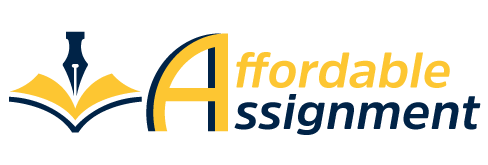I. Introduction
Plagiarism is a serious academic and professional offense that can have far-reaching consequences. It involves the act of using someone else’s work, ideas, or words without proper attribution or citation. As academic and professional standards continue to emphasize the importance of integrity, understanding the gravity of plagiarism and its potential repercussions is crucial for students, researchers, and professionals alike.
What is Plagiarism?
Plagiarism can be defined as the unacknowledged use of another person’s work, ideas, or words as one’s own. It is a form of academic and intellectual dishonesty that undermines the foundation of scholarly and professional endeavors.
Importance of Understanding the Consequences of Plagiarism
By understanding the consequences of plagiarism, individuals can develop a deeper appreciation for the importance of academic integrity, ethical behavior, and the responsible use of information. This knowledge can help individuals avoid the pitfalls of plagiarism and maintain a strong reputation, both academically and professionally.
What are some examples of plagiarism?
Plagiarism can take various forms, and it’s essential to recognize the different ways in which it can occur. Some common examples of plagiarism include:
Copying Verbatim without Attribution Copying a significant portion of text from a source, such as a book, article, or website, without providing proper credit to the original author.
Paraphrasing without Citing the Original Source Rewording or rephrasing the ideas or content of a source without acknowledging the original author.
Submitting Someone Else’s Work as Your Own Turning in a paper, project, or assignment that was created by another person and presenting it as your own original work.
Buying “Affordable Assignment” or “Plagiarism-free Writing Services” Purchasing a pre-written paper or assignment from an online service and submitting it as your own work.
What are some examples of plagiarism?
Plagiarism can be categorized into different types, each with its own set of consequences and implications.
Intentional Plagiarism This occurs when an individual knowingly and deliberately uses someone else’s work without proper attribution. This type of plagiarism is considered a serious academic and professional offense.
Unintentional Plagiarism This happens when an individual fails to properly cite or attribute sources, often due to a lack of understanding or carelessness. While unintentional, it can still have negative consequences.
Self-plagiarism Self-plagiarism involves reusing one’s own previously published work, or portions of it, without properly acknowledging the original source. This can be problematic in academic and professional settings.
How can I avoid plagiarism?
To prevent plagiarism, individuals should develop and practice effective strategies for properly acknowledging sources and demonstrating academic integrity.
Proper Citation and Referencing Becoming well-versed in the appropriate citation styles (e.g., APA, MLA, Chicago) and consistently applying them when using external sources is crucial.
Paraphrasing and Summarizing Skills Developing the ability to paraphrase and summarize information in your own words, while still accurately capturing the essence of the original source, can help avoid inadvertent plagiarism.
Using “Plagiarism-free Writing” Techniques Employing strategies such as taking notes, organizing ideas, and writing drafts can help ensure that your work is truly your own and not a result of unintentional plagiarism.
What are 4 consequences of plagiarism?
The consequences of plagiarism can be severe and far-reaching, affecting individuals academically, professionally, and ethically.
Academic Consequences
- Failing the assignment or course: Plagiarism can result in the complete failure of the assignment or the course itself, with no opportunity for a passing grade.
- Suspension or expulsion from the university: In more serious cases, plagiarism can lead to disciplinary actions, including suspension or even expulsion from the academic institution.
Professional Consequences
- Potential penalties for plagiarism: Depending on the severity and context, plagiarism can result in penalties such as termination of employment, revocation of professional licenses or certifications, and even legal consequences.
- Academic and professional repercussions of plagiarism: Plagiarism can severely damage an individual’s reputation and credibility, making it difficult to secure future academic or professional opportunities.
- How plagiarism can impact your future: Engaging in plagiarism can have long-lasting effects on an individual’s career prospects, as it raises doubts about their integrity and competence.
Ethical and Personal Consequences
- Understanding the gravity of plagiarism: Plagiarism is a serious breach of academic and professional integrity, and it should be viewed as a moral and ethical transgression.
- The serious consequences of plagiarizing: Plagiarism can lead to feelings of guilt, shame, and a loss of self-respect, as it involves intentionally deceiving others.
- The risks of unethical academic behavior: Engaging in plagiarism can undermine an individual’s personal and professional development, as it fosters a lack of critical thinking and self-reliance.
- Plagiarism’s impact on your education and career: Plagiarism can severely jeopardize an individual’s academic and professional advancement, as it may lead to the loss of opportunities and the erosion of trust.
- Why plagiarism is a serious offense: Plagiarism is a violation of the fundamental principles of scholarship, research, and professional conduct, and it should be treated as a significant breach of ethics.
Conclusion
In conclusion, plagiarism is a serious academic and professional offense that can have far-reaching consequences. By understanding the different forms of plagiarism, the various types of plagiarism, and the potential consequences, individuals can develop a stronger commitment to academic integrity and ethical behavior.
Recognizing the gravity of plagiarism and its potential impact on one’s academic and professional success is crucial. By embracing “plagiarism-free writing” practices and maintaining a steadfast commitment to honesty and proper attribution, individuals can safeguard their own credibility and contribute to the overall integrity of their chosen fields.
Readers are encouraged to diligently apply the strategies and techniques discussed in this article to ensure that their work is always their own, and to uphold the highest standards of academic and professional conduct. By doing so, they can not only avoid the consequences of plagiarism but also cultivate a reputation for excellence and trustworthiness.
Frequently Asked Questions and Answers
Q: What is plagiarism?
A: Plagiarism is the unacknowledged use of another person’s work, ideas, or words as one’s own. It is a form of academic and intellectual dishonesty.
Q: What are some examples of plagiarism?
A: Examples of plagiarism include:
- Copying verbatim without attribution
- Paraphrasing without citing the original source
- Submitting someone else’s work as your own
- Purchasing pre-written papers or assignments from online services
Q: What are the different types of plagiarism?
A: The main types of plagiarism are:
- Intentional plagiarism – Knowingly and deliberately using someone else’s work without proper attribution.
- Unintentional plagiarism – Failing to properly cite or attribute sources, often due to lack of understanding or carelessness.
- Self-plagiarism – Reusing one’s own previously published work without acknowledgement.
Q: Why is plagiarism considered a serious offense?
A: Plagiarism is a serious offense because it:
- Undermines academic and professional integrity
- Deprives the original author of credit for their work
- Can result in academic and professional consequences
- Fosters a lack of critical thinking and self-reliance
Q: What are the consequences of plagiarism?
A: The consequences of plagiarism can include:
- Academic consequences: Failing an assignment, course, or even expulsion from the institution
- Professional consequences: Penalties such as termination of employment, loss of licenses/certifications
- Ethical and personal consequences: Damage to reputation, loss of self-respect, and missed opportunities
Q: How can I avoid plagiarism?
A: To avoid plagiarism, you should:
- Properly cite and reference sources using the appropriate citation style
- Develop strong paraphrasing and summarizing skills
- Take notes carefully and organize ideas to ensure your work is original
- Utilize “plagiarism-free writing” techniques
Q: Why is it important to understand the consequences of plagiarism?
A: Understanding the consequences of plagiarism helps individuals:
- Develop a deeper appreciation for academic and professional integrity
- Recognize the importance of ethical behavior and responsible use of information
- Avoid the pitfalls of plagiarism and maintain a strong reputation





